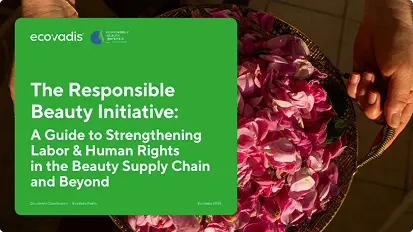The EcoVadis value proposition is to accelerate members’ programs to drive impact at scale, enhanced by collaboration between industry peers, and underpinned by verified data collected through the assessments.
Pierre-François Thaler Co-founder and co-CEO of EcoVadis





